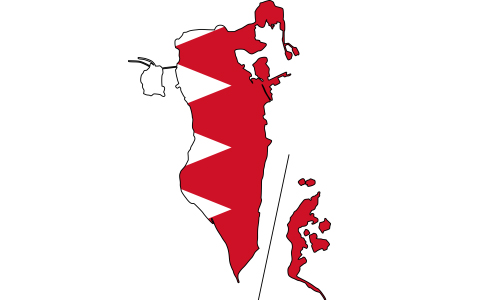This morning, army and police troops in Bahrain, supported by the Saudi and Emirati forces, began a brutal, wide-scale crackdown on the legitimate aspirations of the Bahraini people for far-reaching political and constitutional reform. These aspirations have been expressed in widespread peaceful popular protests in the kingdom since last September; protests that remain undeterred despite the Bahraini authorities’ use of excessive force, the recruitment of foreign mercenaries, and the deployment of thugs.
Today, the crackdown was expanded to five Shiite-majority villages, while helicopters are being used against demonstrators in Manama. The army has also imposed a blockade on major hospitals to prevent them from treating the wounded.
There are unconfirmed reports that indicate that Saudi forces are not only securing vital institutions in Bahrain, but are also taking part in the crackdown in Manama. The Bahraini authorities admitted Saudi and Emirati troops into Bahrain ostensibly to restore stability and security in the face of the turmoil rocking the country, and an official state of emergency has been declared.
CIHRS warns that this grave development is liable to threaten civic peace in Bahrain, where the population, most of whom are Shiites, faces systematic sectarian discrimination. It may also bring bloodshed accompanied by serious violations of human rights and international humanitarian law, of the type now being committed by the Libyan regime against its people.
CIHRS fears that the involvement of other Gulf countries in suppressing the legitimate protests may increase the chances for civil sectarian conflict in the Arab world, particularly in those countries where minorities experience institutional discrimination; and especially the Shiite community in Saudi Arabia and the Zaidi community in Yemen, which has already paid a high price during the war with Houthis in the Saada province. The conflict may also have grave repercussions in other countries that have and still are witnessing sectarian conflicts, such as Iraq and Lebanon.
In this context, the CIHRS calls on the Arab League to assume its responsibilities to mitigate these risks; take an effective, coherent position to support the rights of Arab peoples to freedom; and, demand that Gulf Cooperation Council countries withdraw their troops from Bahrain and refrain from any acts that would suppress Bahrainis’ right to peaceful protest.
Having watched with concern revolutions for democracy in Tunisia and Egypt, Saudi Arabia considers that the need to defend its autocratic regime began from those two countries. In Bahrain, however, it has gone on the offensive, believing that the triumph of the popular uprising next door would lend direct support to advocates for reform at home; particularly the legitimate demands of the oppressed Shiite minority.
CIHRS urges the international community, and particularly the US, whose Fifth Fleet is headquartered in Bahrain, to take appropriate decisions and stances to prevent Bahrain from becoming the site of regional score-settling, which may encourage Iran to intervene to support the Shiite majority in Bahrain and elsewhere, especially Saudi Arabia.
CIHRS stresses the need for the Bahraini authorities to end the ongoing militarization of the country; withdraw foreign mercenaries and thugs; cease using repressive security approaches in dealing with the popular uprising and other forms of peaceful political and social action, in respect of the will of the people and their aspirations; and, to prevent bloodshed and further violence and chaos. Bahrain must create a healthy climate for national dialogue aimed at responding to the legitimate demands of Bahrainis for a constitutional monarchy and far-reaching constitutional and legislative reforms that will ensure Bahrainis’ right to fairly elected, representational institutions. These institutions should be able to exercise their legislative and oversight functions to put an end to institutional sectarian discrimination, the politically motivated naturalization of Sunnis designed to change the country’s demography, and restrictions on freedom of expression and assembly and the right to civic, political, and trade-union association. Such a system should guarantee the independence of the judiciary and uphold the rule of law in all state institutions and agencies.
Share this Post

